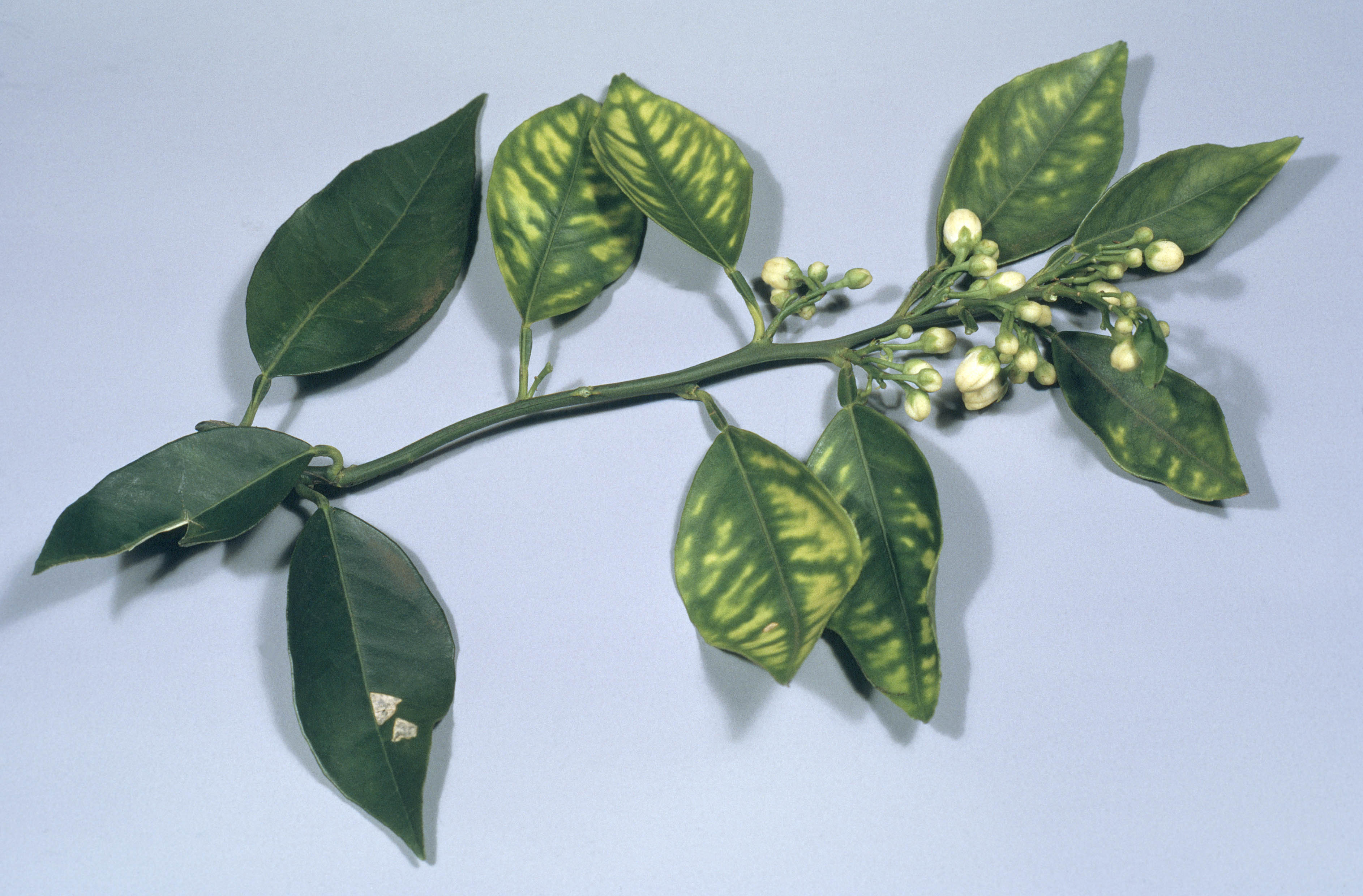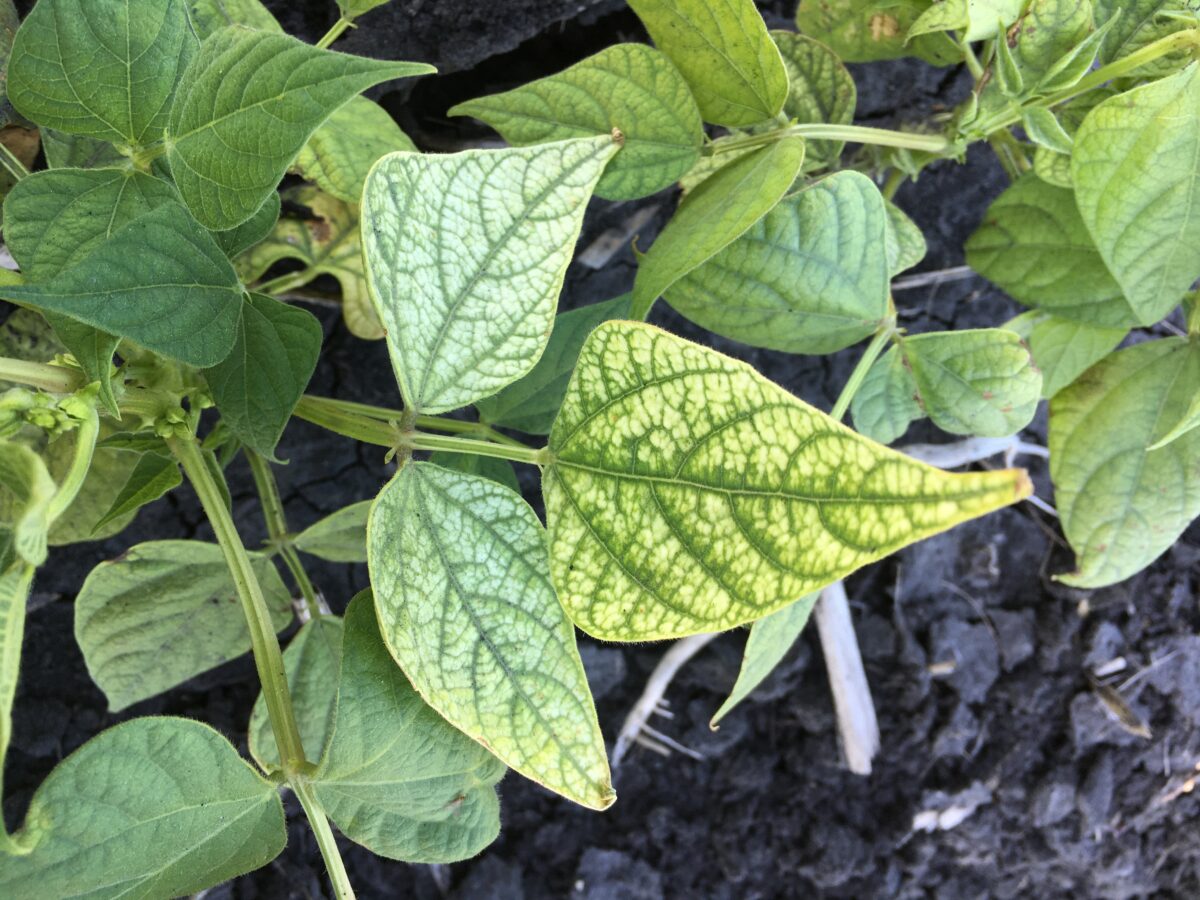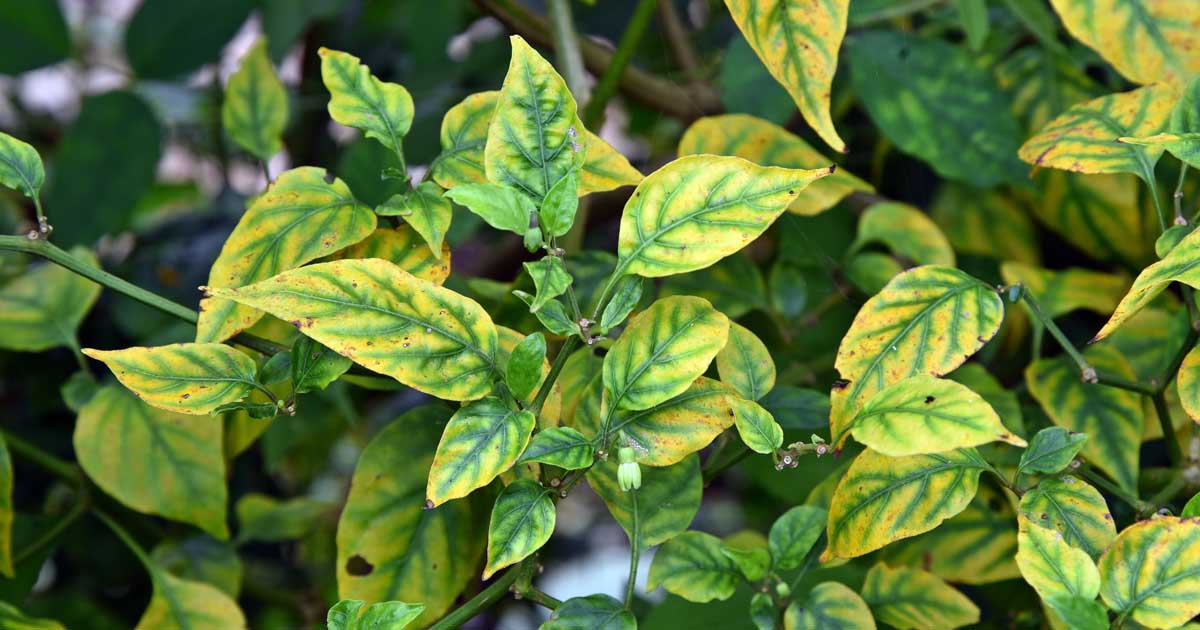What Are The Zinc (Zn) Nutrient Deficiencies In Plants?
Zinc (Zn) deficiency is a condition in which plants lack the essential mineral zinc. Zinc is an important nutrient for plants and is essential for many of their key metabolic functions. Plants require zinc to produce enzymes, synthesize proteins and hormones, and regulate gene expression.
Without sufficient zinc content, plant growth can be stunted or distorted. Zinc deficiency symptoms include yellowing of leaves, reduced leaf size, stunted growth, pale green foliage, malformed flowers or fruits, and reduced yields. These symptoms often occur in patches throughout the field or garden as some areas are more deficient than others.
Overview of Zinc in Plant Nutrition
Zinc (Zn) is an essential nutrient for plants and plays a vital role in plant nutrition. It helps regulate many metabolic processes and is required for enzyme production, protein synthesis, hormone regulation, and gene expression.
Plants require zinc to grow, flower, and produce fruits. Zinc deficiency can cause stunted growth, yellowing of leaves, reduced leaf size, pale green foliage, malformed flowers or fruits, and reduced yields. To ensure healthy crops it's important to maintain adequate levels of zinc in the soil through proper pH levels and supplemental fertilizers.
Additionally, foliar applications of zinc-containing fertilizers may help correct existing deficiencies quickly. By understanding the importance of zinc in plant nutrition it is possible to achieve optimal growth and yield from your crops.
What Causes Zinc Deficiencies in Plants?
Zinc deficiencies in plants occur when the soil is low in available zinc or when the plant cannot absorb enough zinc from the soil. This can be caused by a number of factors, including poor soil fertility, pH levels that are too high or too low, and root damage.
Poor soil fertility can be addressed by adding organic matter to the soil, as well as supplying adequate amounts of nitrogen and other essential nutrients. In addition, regular monitoring of soil pH can help maintain optimal conditions for nutrient availability. Root damage can be caused by pests or disease and may require application of pesticides or fungicides.
Finally, foliar applications of zinc-containing fertilizers are often necessary to correct existing deficiencies quickly. By understanding the causes of zinc deficiency in plants, it is possible to prevent it from occurring in your garden or field crops.
Soil Type and Organic Matter Content
Soil type and organic matter content can play a significant role in preventing zinc deficiencies in plants. Sandy soils tend to be more prone to zinc deficiencies due to the low cation exchange capacity, which reduces the availability of inadequate zinc and other essential nutrients.
On the other hand, clay soils often have higher cation exchange capacities that can provide adequate amounts of zinc for plant health. In addition, adding organic matter such as compost or manure can help improve soil fertility and increase nutrient availability.
This is because organic matter helps enhance soil structure, improve water-holding capacity, and increase nutrient-retention capacity. Therefore, it's important to consider both soil type and organic matter content when managing for optimal plant nutrition.
Essential Micronutrients and Fertilizers
Essential micronutrients are important for healthy plant growth and development. They include nutrients such as zinc (Zn), copper (Cu), iron (Fe), manganese (Mn) and boron (B). While macronutrients like nitrogen, phosphorus and potassium are essential in larger quantities, micronutrients are required in much smaller amounts.
It’s easy to overlook the needs of micronutrients due to their low concentrations in soil and fertilizer, but they can have a significant impact on plant health. Fertilizers are an effective way to ensure adequate levels of micronutrient availability for plants.
Fertilizers typically contain some micronutrient elements that can be applied directly to the soil or taken up by the roots of plants through foliar feeding. In either case, it’s essential to apply the right amount of fertilizer with appropriate timing in order to benefit from its benefits.
Other Factors Contributing to Zinc Deficiencies
Other factors besides inadequate soil fertility can contribute to zinc (Zn) deficiencies in plants. Insufficient or excessive levels of other nutrients such as phosphorus, potassium and calcium can lead to zinc deficiency, as well as high pH or salinity in the soil.
Additionally, some plants may be more susceptible to zinc deficiencies due to their genetic makeup. Another factor that affects zinc availability is the presence of organic matter in the soil. Organic matter helps to bind micronutrients such as zinc and make them available for plant uptake.
Poor water management practices, such as repeated flooding or drought, can also lead to zinc deficiency due to leaching of available micronutrients from the soil. Lastly, improper fertilization practices may contribute to nutrient imbalances which can impact on overall plant health and lead to deficiencies in certain essential elements like Zn.
Soil pH
Soil pH is an important factor for plant growth and health, as it affects the availability of essential nutrients. In general, soil pH should be in the range of 6.0-7.5 for most plants to function optimally. At higher or lower levels, certain essential nutrients such as zinc (Zn), iron (Fe), phosphorus (P), and potassium (K) become less available to the plant, resulting in nutrient deficiencies.
Low pH levels can cause aluminum toxicity which can impair plant growth and development. Additionally, extreme high or low pH values can lead to a decrease in microbial activity and reduce organic matter content in the soil, both of which are important factors for healthy soil fertility.
Therefore, it is important to regularly monitor soil pH levels so that adjustments can be made if necessary to ensure optimal nutrient availability for your plants.
Leaching and Runoff
Leaching and runoff are two processes that can cause nutrient deficiencies in plants. Leaching occurs when water runs through the soil, carrying away nutrients with it. This is most often a problem in sandy soils or during periods of heavy rainfall.
Runoff happens when large amounts of rainwater flow over the surface of the soil, carrying away nutrients such as zinc (Zn) before they have a chance to absorb into the roots. In both cases, these valuable minerals are lost before they can be used by the plant, resulting in nutrient deficiencies.
To prevent leaching and runoff, farmers should practice conservation tillage or use cover crops to help keep vital soil nutrients onsite and available for their crops. Additionally, proper irrigation techniques can help reduce leaching losses by ensuring that water does not run off too quickly from fields.
Excess Iron or Calcium Levels in the Soil
Too much of a good thing can be a bad thing, and this is definitely true when it comes to soil nutrients. Excessive levels of iron (Fe) or calcium (Ca) in the soil can lead to deficiencies of other essential nutrients such as zinc (Zn).
This can cause serious problems for plants, leading to stunted growth and reduced yields. High levels of these two minerals are most commonly found in acidic soils, and are caused by over-application of fertilizers with high concentrations of iron and calcium.
To reduce levels of these minerals, farmers should avoid adding too much fertilizer at once, as well as using lime to adjust the pH level of the soil. Additionally, incorporating organic matter into the soil can help reduce excessive nutrient levels.
Symptoms of Zinc Deficiency in Plants
Zinc (Zn) is an essential nutrient for plant growth and health. When plants are deficient in zinc, they may show a variety of symptoms such as yellowing leaves, stunted growth, and poor flowering or fruiting. Zinc deficiency can also cause problems with root development, making the plant more susceptible to drought stress.
Visual Symptoms on Leaves, Vines, and Fruit
Visual symptoms of zinc deficiency can be seen in leaves, vines, and fruit. On leaves, a common symptom is interveinal chlorosis—yellowing between the veins while the veins remain green. Young leaves are often the most affected and may show signs of stunted growth or wilting.
Vines may also exhibit stunted growth or reduced flowering. On fruits and vegetables, zinc deficiency can cause the fruit to appear distorted or undersized. Additionally, some plants may produce small, poorly-formed fruits with thick skin and poor flavor.
Pale Green or Yellow Leaves with Dark Veins
Pale green or yellow leaves with dark veins can be a sign of zinc (Zn) deficiency in plants. Zinc is an essential nutrient for plant health, so it is important to identify this symptom and take steps to correct the issue as soon as possible.
If your plants have pale green or yellow leaves with dark veins, first check the soil for available levels of zinc. If zinc levels are low, you can add a fertilizer containing zinc to replenish the soil's supply. Additionally, you may need to consider other factors that can prevent zinc from being absorbed, such as pH imbalances and soil compaction.
Chlorosis at Leaf Tips or Margins
Chlorosis at leaf tips or margins can be a sign of zinc (Zn) deficiency in plants. Chlorosis is a yellowing or bleaching of plant foliage, which can indicate the plant is not getting enough nutrients from the soil. Zinc is an essential nutrient for healthy plant growth, so it's important to identify this symptom and take steps to correct the issue as soon as possible.
If your plants are exhibiting chlorosis at leaf tips or margins, first check the soil for available levels of zinc and other trace elements. If zinc levels are low, you can add a fertilizer containing zinc to replenish the soil's supply. Additionally, you may need to consider other factors that can prevent zinc from being absorbed, such as pH imbalances and soil compaction.
Stunted Growth and Poor Yields
Stunted growth and poor yields are common characteristic symptoms of zinc (Zn) nutrient deficiencies in plants. Plants require trace amounts of zinc for proper growth, development, and yield production. When a plant is lacking this essential nutrient, it can experience stunted growth and poor yields.
Some signs of zinc deficiency include: chlorotic or yellowing leaves, slow-growing new shoots, and reduced fruit or seed production. If your plant exhibits these deficiency symptoms, you may need to take steps to replenish the soil's zinc supply. This can be done by applying a fertilizer that contains the necessary micronutrients or through foliar application directly onto the affected foliage.
Deformed Leaves, Vines, and Fruit
Deformed leaves, vines, and fruit are common signs of zinc (Zn) nutrient deficiencies in plants. When a plant does not receive the necessary trace amounts of zinc for optimum growth, development, and yield production, it can lead to deformed leaves, vines, and fruits.
The foliage may appear twisted or curled in an unnatural manner, become discolored with yellowing or chlorotic spots at their tips or margins, or appear stunted in size.
Testing for Zinc Deficiencies in Plants
Testing for zinc (Zn) deficiencies in plants can be done with a soil or tissue test. Soil tests are the most accurate way to diagnose a zinc deficiency in plants as they measure the available levels of zinc in the soil.
A soil test should be conducted when a suspected deficiency is present, or when applying amendments to the soil that may contain zinc. Tissue tests are also useful for diagnosing zinc deficiencies in plants but cannot determine if the problem is due to an available soil deficiency or if it is caused by other factors such as drought or pest damage.
Tissue tests involve collecting plant material and testing it for its nutrient content. If levels of zinc are low, then further action can be taken to correct the deficiency through fertilizing or foliar application of a micronutrient mix containing zinc.
Best Management Practices To Avoid or Treat Plant Zinc Deficiency
Best management practices to avoid or treat plant zinc deficiency involve fertilizer and soil amendments, as well as proper watering and pest management. Fertilizers should contain adequate amounts of zinc for the plants being grown. Soil amendments such as compost, manure, and other organic sources can also add zinc to the soil.
Additionally, proper watering is important for maintaining adequate levels of zinc in the root zone of plants. Lastly, it is important to reduce or eliminate pest damage as pests can cause nutrient deficiencies by consuming plant material.
Application of Liquid Fertilizers Containing Zinc
Liquid fertilizers containing zinc are an excellent way to provide plants with the essential nutrients they need to thrive. When applied properly, these fertilizers can help prevent zinc deficiency and other nutrient deficiencies.
To apply liquid fertilizers containing zinc, start by determining the appropriate rate for your specific plants and soil type. Then, mix the fertilizer solution according to the label instructions and begin applying it to the soil around the base of your plants.
Be sure to water in the solution to ensure that it is absorbed into the root zone of your plants. Finally, repeat this process regularly as needed throughout the season or year for optimal growth and health of your plants.
Sources of Zinc for Agriculture Use
Zinc is an essential nutrient for plants, and many farmers use various sources of zinc to ensure their crops get the necessary amount of this mineral. For agricultural purposes, zinc can be obtained from both organic and inorganic sources.
Organic sources of zinc include compost, animal manure, bone meal, rock phosphate, and seaweed extract. Inorganic sources include zinc sulfate, zinc oxide, and chelated forms of zinc such as EDTA-zinc. Depending on the crop being grown and other factors such as soil type or pH level, one type of zinc source may be more effective than another for providing adequate levels of this important nutrient.
Monitoring Soil Nutrient Levels for Maximum Yields
Monitoring soil nutrient levels is an important part of ensuring maximum yields in agricultural production. Nutrient deficiencies can lead to poor crop growth and decreased yields, so being aware of the current levels of essential nutrients such as nitrogen, phosphorus, potassium, and zinc is key for successful farming.
To monitor these levels, farmers should take regular soil samples from their fields and send them to a lab for plant analysis. The results from these tests will provide an accurate assessment of the soil's current nutrient composition, helping farmers decide on which amendments may be necessary to improve their soils for optimal crop growth.














